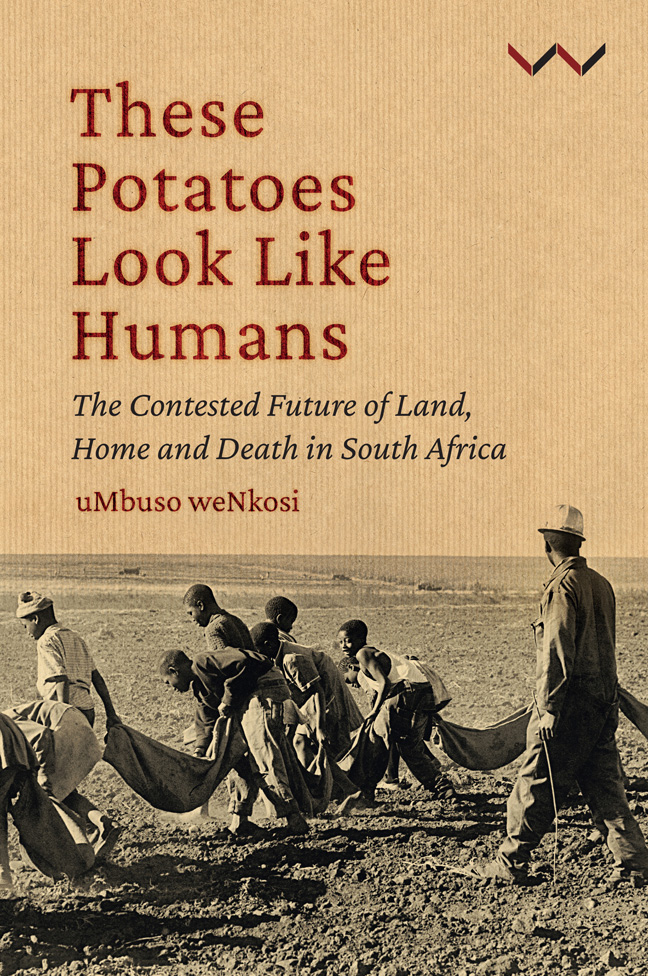Book contents
- Frontmatter
- Dedication
- Contents
- List of illustrations
- Acknowledgements
- Prologue: Emazambaneni: The land of terror
- 1 The spectre of the human potato
- 2 Whose eyes are looking at history?
- 3 Bethal, the house of God
- 4 Violence: The white farmers’ fears erupt
- 5 These eyes are looking for a home
- 6 Bethal today
- 7 Our eschatological future
- Notes
- Bibliography
- Index
1 - The spectre of the human potato
Published online by Cambridge University Press: 01 March 2024
- Frontmatter
- Dedication
- Contents
- List of illustrations
- Acknowledgements
- Prologue: Emazambaneni: The land of terror
- 1 The spectre of the human potato
- 2 Whose eyes are looking at history?
- 3 Bethal, the house of God
- 4 Violence: The white farmers’ fears erupt
- 5 These eyes are looking for a home
- 6 Bethal today
- 7 Our eschatological future
- Notes
- Bibliography
- Index
Summary
It was revealed how on the potato farms, as they were digging potatoes using ploughs pulled by cows, a dead person – a human body – was discovered. Again when the lorries arrived in Johannesburg it was reported that in one of the potato bags appeared a human head instead of a potato. But I for one I never saw it. I just heard when I arrived at eGoli [Johannesburg]. It was then that the quarrel began.
People in Johannesburg started accusing us of killing people and planting them as potatoes. When we arrived in Johannesburg they would say, ‘Yes, we saw a potato that looked like a human being from the farm you were working on. You are the ones who were beating up these people, you guards.’
— Ngubeza MahlanguNgubeza Mahlangu's statement, which he made in an interview with Tshepo Moloi that took place in eMzinoni, Bethal (Mpumalanga), on 4 August 2008, speaks to a particular time in South African history.
When a human head was found amid a potato crop in 1959, it sparked a rallying call for political action: to boycott the buying and consumption of potatoes. At the time, many claimed to see potatoes that looked like ‘human beings’ sold in markets across South Africa. The sacks of potatoes were traced back to farms around Bethal. On 31 May of that year, the last day of the two-day national conference of the African National Congress (ANC), the activist Robert Resha ‘called for a boycott of potatoes to begin at midnight as a new protest against bestial treatment of African farm laborers’. The call was supported by the South African Congress of Trade Unions (SACTU). Moses Mabhida, the acting president of the ANC in Natal, argued that ‘[t] he potato boycott was the first direct attack on one of the main pillars of reactionary policies in our country, namely, the feudal farming interests. The main economic base of the South African cheap labour structure, with its pass laws, migratory labour, low wages, is the twin pillar of mining and farming interests.’
The ‘human potato’ haunted the South African landscape in the 1940s and 1950s. Newspapers reported how farmers in Bethal were brutally killing farmworkers, secretly burying them in unmarked graves on the farms. One worker told of seeing a plough dig up skulls and bones when he and others were working the land.
- Type
- Chapter
- Information
- These Potatoes Look Like HumansThe Contested Future of Land, Home and Death in South Africa, pp. 11 - 30Publisher: Wits University PressPrint publication year: 2023



